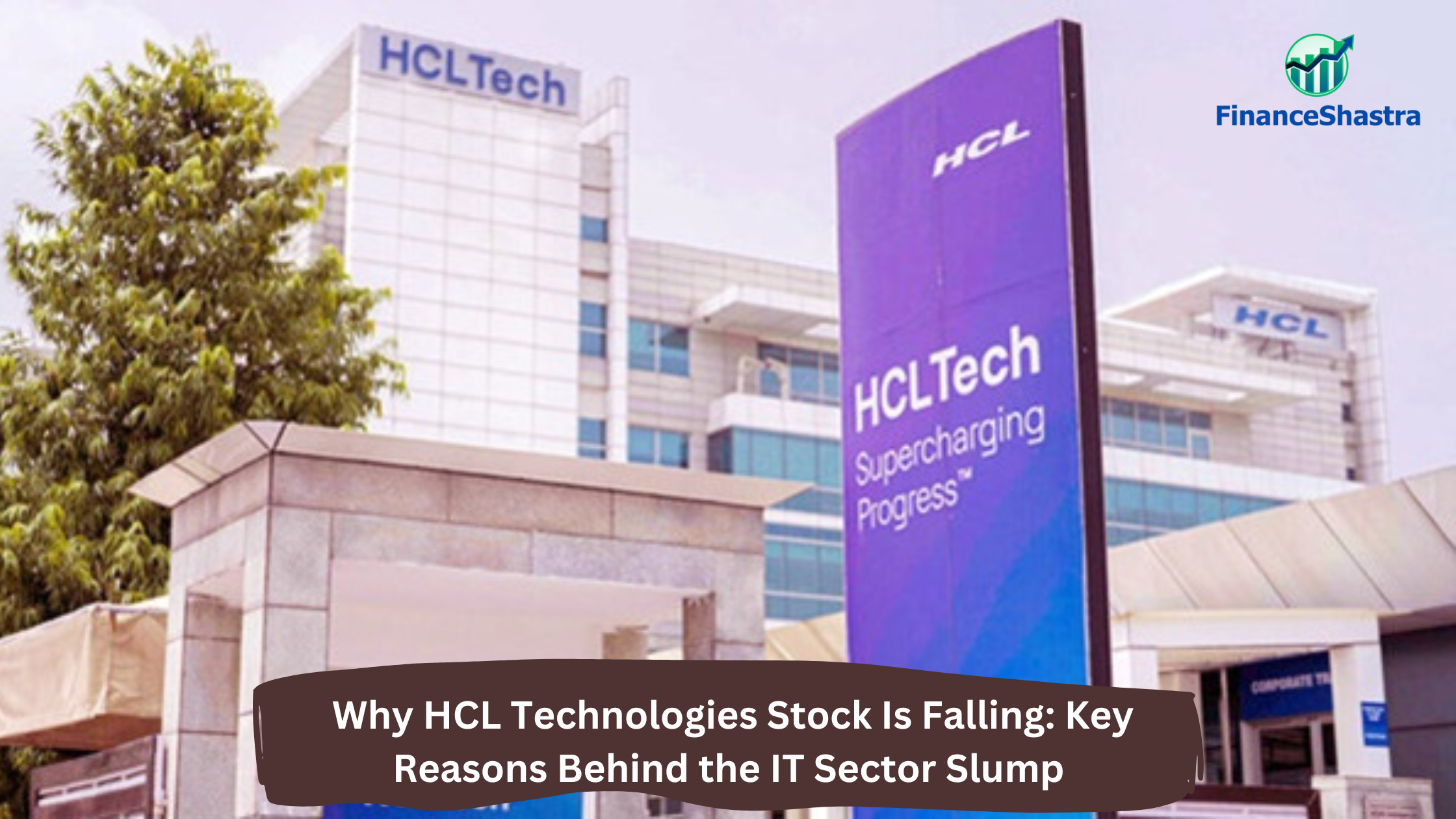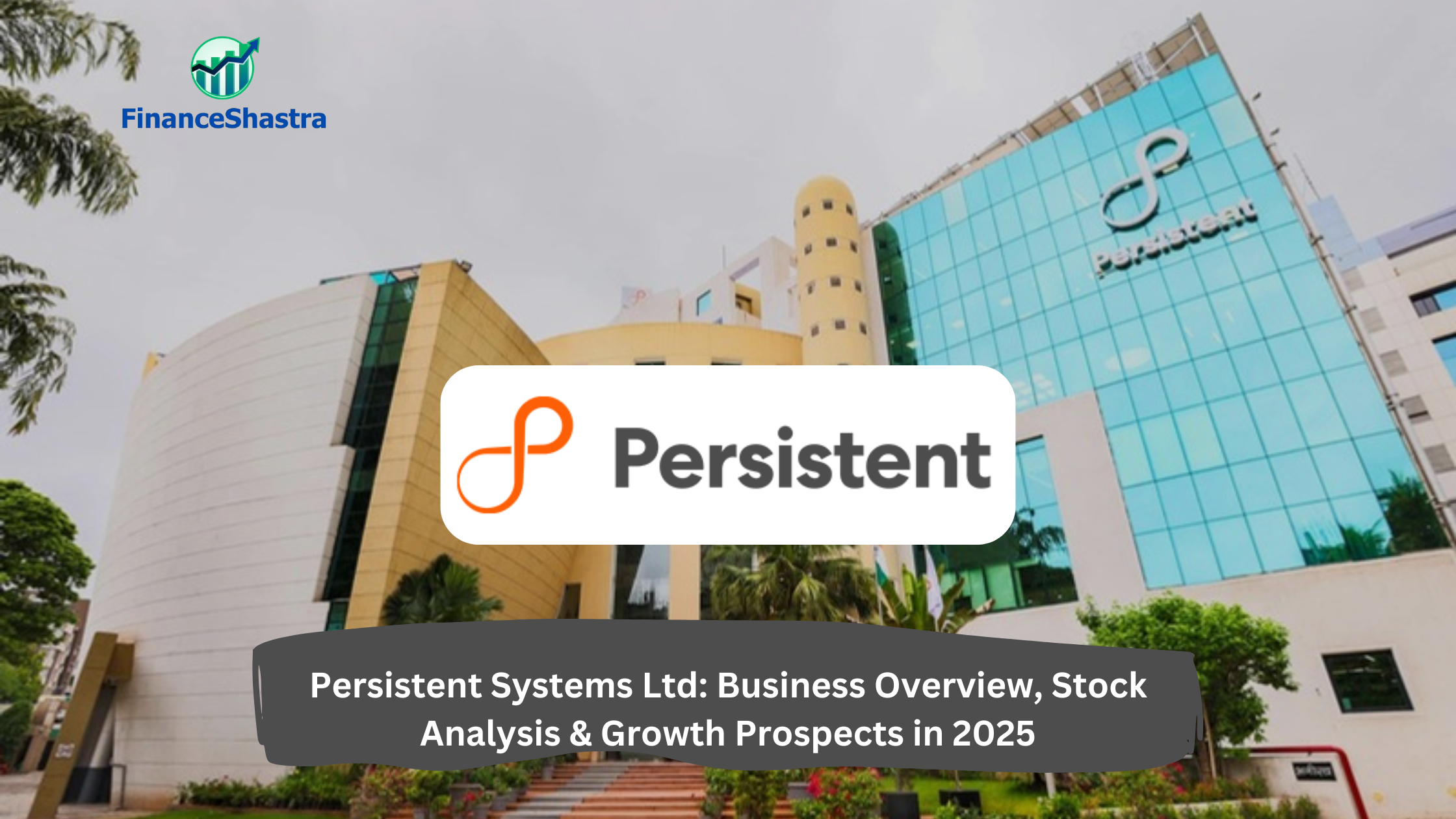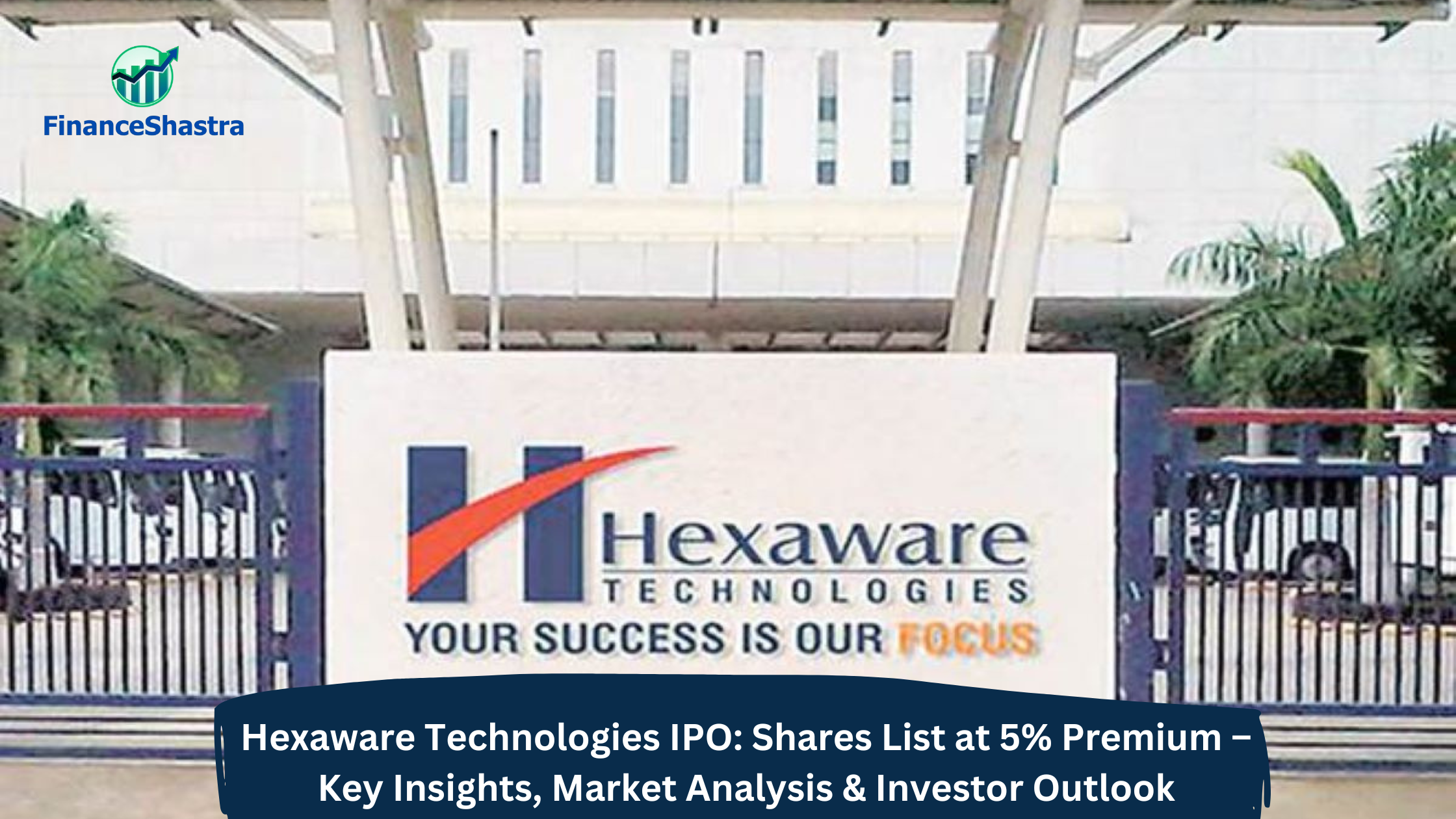Why HCL Technologies Stock Is Falling: Key Reasons Behind the IT Sector Slump
Business and Industry Overview:
HCL Technologies, or HCLTech, is a big IT company from India. It was started in 1976 by Shiv Nadar. He and a team of engineers made personal computers. The team sold calculators to get money for their computer project. They called the company Hindustan Computers Limited (HCL) in 1976. In 1978, HCL made India’s first home-made computer. By 1983, they also made important software. This included a system for databases, networking, and client-server technology. At first, HCL worked mainly on hardware. In 1991, HCL Technologies became its own company. It focused on software and technology services. The company changed its name to HCL Overseas Limited. They started helping businesses with IT services. In 1993, HCL helped build India’s first digital stock exchange for the National Stock Exchange (NSE). In 1994, the company changed its name again to HCL Consulting Limited. Then in 1999, it became HCL Technologies Limited. This name showed that the company was focused on technology. HCL grew and expanded to the US, Europe, and other parts of the world. They started offering services like cloud computing, cybersecurity, and helping businesses with digital changes. Today, HCL Technologies works in over 60 countries. They have more than 220,000 employees. HCL helps many companies with technology. It is still growing and is a leader in the IT industry.
Latest Stock News:
HCL Technologies Ltd. (HCLTech) has recently seen some changes in its stock price. On April 3, 2025, the stock dropped by 3.71%. It closed at ₹1,470.80. This fall was part of a larger downturn in the Indian stock market. The BSE SENSEX Index also dropped by 0.42% to 76,295.36. HCLTech’s stock is now 26.86% lower than its highest price in the last year. Its 52-week high was ₹2,011.00 on January 13, 2025. Earlier in the week, on April 1, 2025, HCLTech’s stock fell by 3.41%. It closed at ₹1,540.00. The increase in trading volume shows that investor sentiment has changed. The previous week, on March 28, 2025, the stock fell by 2.20%, closing at ₹1,590.95. At that time, it was 20.89% below its 52-week high. These drops show that investors are watching HCLTech closely. They are considering both the broader market conditions and the company’s performance.
Despite these stock drops, HCLTech has received recognition in two important reports. In the HFS Horizons: Generative Enterprise Services, 2025 report, HCLTech was praised for its strong work in AI and Generative AI (GenAI). The company has solutions like AI Force and AI Foundry. These help businesses use AI in a better way. HCLTech works with partners to create new GenAI products. This shows its leadership in helping businesses change digitally. In the IDC MarketScape: Worldwide Adobe Experience Cloud Professional Services, 2024–2025, HCLTech was named a leader for its work with Adobe tools. The company helps businesses create more personalized customer experiences. It improves customer satisfaction and business operations. HCLTech has a global network of labs and centers. These centers help clients get the best results with Adobe tools. Both reports show that HCLTech is strong in AI, GenAI, and customer experience, even though its stock has fallen.
Potentials:
HCL Technologies (HCLTech) has many plans for the future. The company wants to focus on AI (artificial intelligence) and GenAI (generative AI). These technologies help businesses work smarter. AI can make things automatic and help businesses make better choices. GenAI can create new things like text, pictures, and ideas from data. HCLTech plans to use these technologies to help businesses save money and improve their services. HCLTech is also focusing on cloud computing. Cloud computing means storing data and using software over the internet. This helps businesses avoid costs and be more flexible. HCLTech wants to offer more cloud services to help businesses grow and change easily. The company wants to build more partnerships with other companies. These can be big tech companies or smaller startups. By working together, HCLTech can offer better solutions and ideas. This will help businesses solve problems and grow faster. HCLTech is looking to expand into new markets. These are countries where businesses are growing quickly. These countries need technology services, and HCLTech wants to provide them. This will help HCLTech reach more customers and grow globally. The company is also putting money into research and development. This means they are working on creating new tools and technologies. These tools will help businesses stay ahead in the fast-changing world of technology. With better tools, businesses can adapt and stay competitive. HCLTech cares about sustainability. They want to help businesses be more eco-friendly. This means using less energy and reducing waste. HCLTech plans to offer solutions that help businesses meet environmental goals. This will help the planet and make businesses follow the new rules about the environment.
In short, HCLTech wants to help businesses use AI, GenAI, and cloud services. They want to create better tools and build partnerships with other companies. HCLTech also wants to help businesses grow in new markets and be more eco-friendly. Their goal is to lead in technology and help businesses succeed.
Analyst Insights:
- Market capitalisation: ₹ 3,86,595 Cr.
- Current Price: ₹ 1,425
- 52-Week High/Low: ₹ 2,012 / 1,235
- P/E Ratio: 22.6
- Dividend Yield: 3.79%
- Return on Capital Employed (ROCE): 29.6%
- Return on Equity (ROE): 23.3%
HCL Technologies is a strong company to invest in for several reasons. First, the company is growing steadily. Its revenue has gone up by around 16% over the past year. This shows that the company is doing well and getting bigger. It also makes a good profit. The company’s profit margin is 22%, which means it keeps a good portion of its income after covering costs.
One big advantage is that HCL Technologies has no debt. This is good because it doesn’t need to worry about paying interest on loans. It can focus on growing the business. Also, the company shares its profits with investors by paying good dividends. Its dividend yield is 3.79%, which is higher than many other companies. This is good for people who want regular income from their investments.
The company is one of the biggest IT firms in India. It is also becoming more popular worldwide. Its brand value has increased by 16%, showing that more people know about it and trust it. HCL Technologies is using its money well, as shown by its Return on Capital Employed (ROCE) of 29.6% and Return on Equity (ROE) of 23.3%. These numbers show that it is making good use of its resources and making money for its investors.
In simple terms, HCL Technologies is a safe and steady company. It has strong growth, makes good profits, has no debt, and shares its earnings with investors. These factors make it a good option for long-term investment.




